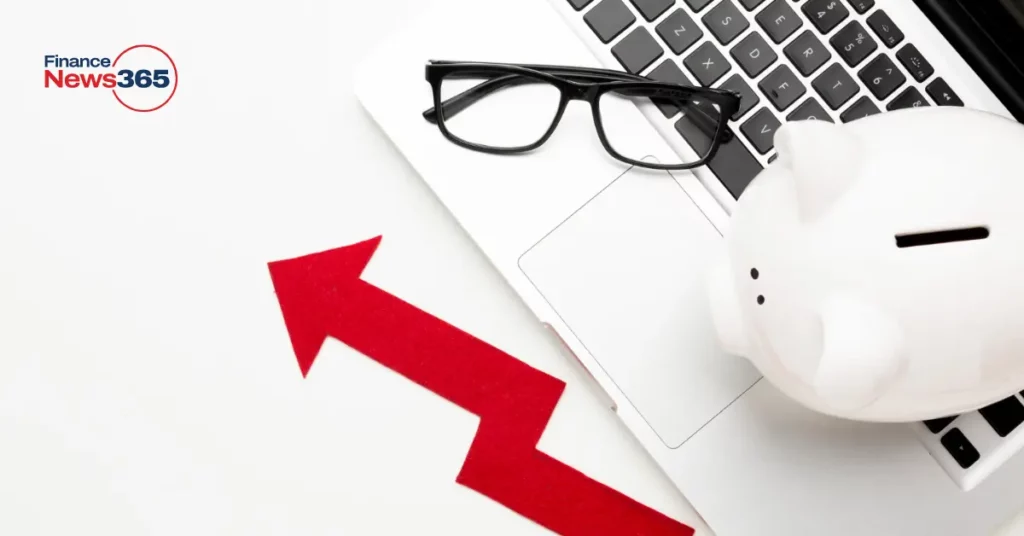
Why Defaulting on Debt Can Lead to Legal Trouble
The consequences of defaulting on debt can be dire; discover how ignoring your obligations can spiral into legal chaos.


Understanding the financial impacts of loan default is essential for maintaining your economic stability. When you default, immediate consequences can include late fees, asset loss, and emotional stress. Your credit score takes a significant hit, potentially affecting your ability to borrow in the future and even impacting employment opportunities. To avoid defaulting, explore alternatives like debt consolidation, financial counseling, or negotiating with lenders. Recovery strategies such as budgeting and prioritizing high-interest debts can help you regain control of your finances. Knowing these factors prepares you to make informed decisions and navigate financial challenges successfully. There’s much more to contemplate for your financial health.

Loan default occurs when a borrower fails to meet the legal obligations of their loan agreement, typically by missing payments. When you enter into a loan agreement, you agree to specific loan terms, which outline your responsibilities regarding repayment. These terms can include the amount borrowed, interest rates, and the payment schedule. If you don’t adhere to these terms, you may find yourself in default.
It’s essential to understand your borrower rights in this situation. As a borrower, you have the right to receive clear information about your loan and the consequences of default. If you face financial difficulties, you should communicate with your lender.
Often, lenders may offer solutions, such as restructuring your loan or providing deferment options, to help you avoid default. Additionally, being aware of the grace period—if applicable—can provide you with a buffer before penalties kick in.
Knowledge of your rights and the terms of your loan allows you to make informed decisions and potentially prevent default. Ultimately, staying proactive about your financial situation can help you navigate the complexities of loan agreements more effectively.
Missing payments can lead to immediate financial consequences that can greatly impact your overall financial health. When you default on a loan, you might face unexpected expenses due to late fees or penalties imposed by lenders. These extra charges can disrupt your budget, creating budgeting challenges that make it harder to manage your day-to-day expenses.
Additionally, the emotional stress associated with financial instability can affect your mental well-being. Worrying about bills and debts can lead to anxiety, making it difficult to focus on other important aspects of your life. You may find yourself constantly preoccupied with how to recover financially.
Furthermore, defaulting on loans can result in asset loss. Lenders may seize collateral or initiate legal actions to recover their funds, which can diminish your overall wealth. Protecting your assets becomes essential, as losing them can have lasting effects on your financial future.
Understanding these immediate consequences can help you make informed decisions and prioritize timely payments, ultimately safeguarding your financial health and stability.
The impact of financial missteps can linger long after the immediate consequences fade, particularly when it comes to your credit score. When you default on a loan or credit account, your credit score takes a significant hit. This negative mark stays on your credit report, typically for seven years, affecting your ability to secure future loans or favorable interest rates. The longer the default duration, the more detrimental the effects become.
After a default, not only will you see a drop in your credit score, but you might also experience higher premiums on insurance or even difficulties in renting an apartment. Lenders view a lower credit score as a sign of risk, making it harder for you to obtain new credit.
While you can rebuild your credit over time, it requires diligence and responsible financial behavior. Paying bills on time, reducing existing debt, and maintaining low credit card balances are essential steps in this process.
Your financial history can considerably influence your job prospects, as many employers now check credit reports as part of their hiring process. When you submit job applications, a poor credit history can raise red flags for employers, leading them to question your reliability or responsibility.
This practice can result in employment discrimination, especially if you’ve defaulted on loans or have significant debt. Employers often justify these checks by arguing that financial stability reflects an individual’s character and trustworthiness.
Consequently, if your credit report reveals defaults or missed payments, you may find yourself at a disadvantage compared to other candidates with cleaner financial records.
Moreover, some industries, particularly those involving finance or security, may place a higher emphasis on credit history. In these fields, a negative financial background could cost you the opportunity, even if you’re otherwise qualified.
To navigate this challenge, it’s essential to be aware of how your financial decisions impact your professional life. Taking steps to improve your credit score and understanding the implications of your financial history can enhance your employment opportunities in the long run.
Defaulting on loans can feel overwhelming, but there are several alternatives you can explore to avoid this situation. One effective option is debt consolidation, where you combine multiple loans into a single, lower-interest loan. This simplifies payments and can reduce your monthly financial burden.
Financial counseling can also provide valuable insights, helping you understand your finances better and develop a solid plan to stay on track. Consider creating a budget plan that details your income and expenses, which can reveal areas where you can cut back. This may enable you to free up funds for loan payments.
Additionally, negotiation strategies are worth exploring; many lenders are open to discussions about modifying payment terms or interest rates. You might find they offer payment alternatives to better fit your financial situation.
If you’re facing temporary financial hardship, research hardship programs that your lender may provide. These programs can offer reduced payments or deferments, allowing you to manage your financial obligations without defaulting.
Recovering from financial setbacks requires a strategic approach to rebuild your stability and confidence. Start by focusing on debt management. Create a detailed budget that outlines your income and expenses, allowing you to identify areas where you can cut costs.
Prioritize paying off high-interest debts first, as this will save you money in the long run. Consider negotiating with creditors for lower interest rates or more flexible payment plans.
Increasing your financial literacy is equally essential. Take the time to educate yourself about personal finance concepts, such as interest rates, credit scores, and investment options.
Utilize resources like online courses, webinars, or books that focus on personal finance. Understanding these principles will empower you to make informed decisions and avoid future pitfalls.
Additionally, consider establishing an emergency fund. This safety net can help you manage unexpected expenses without falling back into debt.
Finally, set achievable financial goals, whether it’s saving for a significant purchase or planning for retirement. Regularly review your progress and adjust your strategies as needed.
In summary, understanding the impacts of loan default is essential for your financial well-being. The immediate consequences can be severe, affecting your credit score and future employment opportunities. However, there are alternatives to defaulting, and employing effective recovery strategies can help you regain control of your finances. By taking proactive steps and making informed decisions, you can navigate these challenges and work towards a more secure financial future. Always prioritize communication with lenders to explore your options.

The consequences of defaulting on debt can be dire; discover how ignoring your obligations can spiral into legal chaos.

Defaulting on a loan drastically diminishes future borrowing options, but understanding the reasons behind this can empower your financial decisions.

Bouncing back from a loan default can be challenging; discover how it impacts your credit score and what steps you can take to recover.

Find out essential steps to take after defaulting on debt that could pave your way to financial recovery and stability.